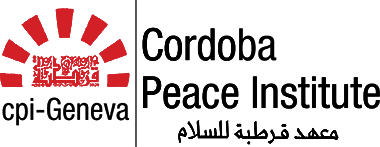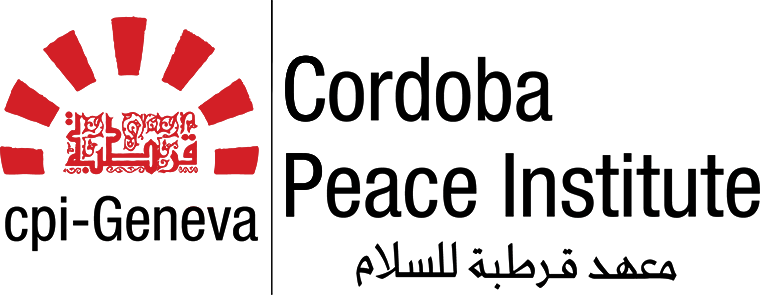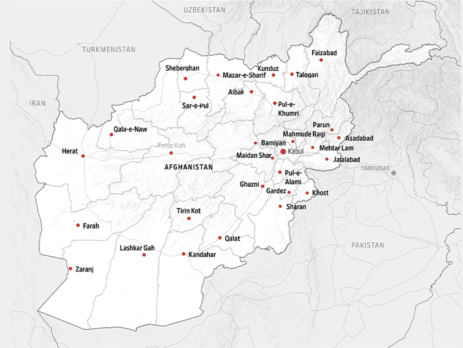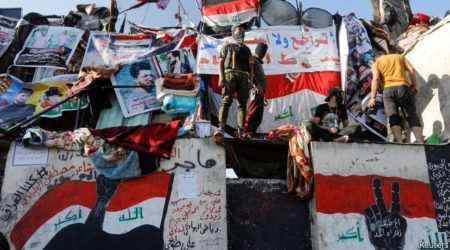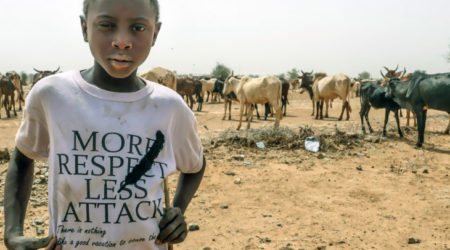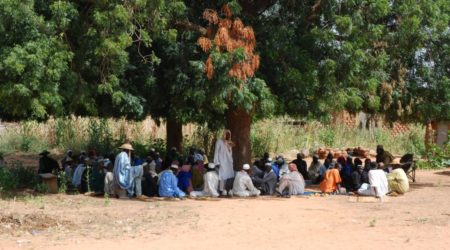Monthly Afghanistan News Roundup – January 2023
Within the framework of the Fiqhi Pathways project implemented jointly by CPI-Geneva and the Peace and Human Rights Division, engagement with Deobandi scholars of or close to Taliban and Pakistan is pursued to promote governance in line with IHL and Islamic jurisprudence through Fiqhi dialogue exchanges. This monthly newsletter hopes to keep track of the discussions and debates among scholars on issues of governance policies of the Taliban, especially in the areas of education, social policies, and statecraft and governance institutions.
By Ozair Khan
1. Meeting between Ayatollah Sistani and Afghan Shias
Grand Ayatollah Sistani met an Afghan Shia Ulema Council delegation in Najaf on January 2nd. He encouraged the Afghan Shias to adopt a peaceful policy with the Taliban government. Hossein Alami Balkhi, a Shia Ulema Council of Afghanistan member, said Marjas in Qom and Mashhad also support the engagement. [1]
2. Meeting between Haibatullah Akhunzadah and various provincial religious councils
On January 10th, a consultative meeting between Ulema heads, assistants, and administrative officials of the Councils of Ulema of Kandahar, Helmand, Zabul, Nimroz, and Amir al Muminin took place. Indeed, for the past few weeks, the Emirate has ordered the establishment of Ulema Councils in various provinces. One of the goals of this decision is to facilitate discussions between the population and scholars. It indicates that even if the Taliban have a centralized government, local assemblies will have some power. Here is a transcript of the meeting published by the spokesperson of the Taliban, Zabihullah Mujahid:
“You know that Shura has an essential place in Islam. The prophet used to consult with the Companions, and by consulting, unity, and consensus among Muslims were strengthened.
Nowadays, many problems of the people have been solved by these Shura councils. You, scholars, must continue listening to the people and helping them. Your work does not end until the day of Judgement.
With the help of Allah Almighty, an Islamic system is finally in place, and you scholars are at its head, therefore, do not forget Allah is watching you. Scholars are crucial in establishing a permanent relationship between the Islamic Emirate and the people, solving the people’s problems, bringing reforms in the provincial administrations, and further development.” [2]
3. Fatwa against the Pakistani Taliban
Since the end of November 2022, the ceasefire between the Pakistani state and the Pakistani Taliban (TTP) has been broken. Therefore, we have seen an escalation in attacks in Pakistan.
On January 7th, sixteen Pakistani Pashtun scholars from different sects issued an edict stating that violent extremism and terrorism violate the principles of Islam. The fatwa is a list of questions and answers on the issue of democracy and the male beard in Islam. This document condemns TTP’s Jihad against the Pakistani state and is a direct response to Noor Wali Mahsud, the head of the TTP, who had recently urged the Ulema in Pakistan to wage Jihad against the state. In response to this latest development, Mahsud requested the Pakistani Ulama not to call them terrorists and that if these Ulema see TTP’s activities as wrong, then they can always sit for a discussion. Mahsud also said that in his eyes, scholars’ refusal to comment on TTP’s activities is a sign of support for his group. Besides, he claimed that the TTP did not break the ceasefire they had with the Pakistan side (until the end of November 2022). Instead, according to him, the attacks they committed were only revenge and defensive attacks in response to violations of the ceasefire by the Pakistani state. [3]
4. Sher Mohammad Abbas Stanekzai’s subtle criticism of the girls’ education ban
On January 10th, Sher Mohammad Abbas Stanekzai, the Taliban’s deputy foreign minister, recently said in a speech at a graduation ceremony in Logar province that only the ruler’s orders that comply with the Sharia must be followed unquestionably. This is a criticism of the Taliban leadership’s decision to ban girls’ education. It exemplifies the deep divide between the Taliban. According to most of the people CPI interviewed during its last two field missions in Pakistan, the Taliban are divided into the pragmatic (who have been outside Afghanistan) and the dogmatic. Stankezai has been a senior member of the Taliban’s political office in Doha since it was set up in 2012 and was its head from 2015 to 2020. He speaks English, Urdu, Pashto, and Dari and has traveled widely to other countries as a Taliban political representative. In his speech, Stanekzai also affirmed that he is in contact with Ismail Haniyeh, a senior political official of Hamas, who told him about many groups in the Arab world look up to the Taliban’s success. [4]
5. Ministry of Education’s clarification
On January 11th, Muhammad Nadeem, the Minister of Higher Education behind the ban on girls’ schooling, mentioned in a speech that he is not against modern education and that doctors, engineers, and pilots are necessary, and that it is, as a matter of fact, a fard kifayyah (a collective obligation). Still, it has to be within the bounds of the Shariah. Mohammed Nadeem apparently declared this in response to the backlash following the recent ban. It indicates that at some point (although it might take an excruciating amount of time), girls will have to study at least some vital subjects to improve daily life in Afghanistan, such as medicine. [5]
6. International Union of Muslim Scholars’ visit
On January 11th, a delegation from the “International Union of Muslim scholars” met several high Taliban representatives, such as Mohammed Nadeem. This delegation comprised influential scholars from Egypt, Sudan, and even Saudi Arabia. The main topics of this visit were to speak about the recent ban on education and invite Muslim countries to recognize the Taliban officially.
As for girls’ schooling, the delegation called for the Islamic Emirate to allow girls to study since it is their religious right. Mufti Nadeem and his like-minded supporters acquiesced. Mufti Nadeem most notably expressed the same day that it would be wrong to assume the Emirate is against education. From the outside, both parties seem to agree, but this isn’t the case. As in many disagreements, both parties might use the same language but with different intents. The question here is, what does education really mean? Scholars from the foreign delegation, such as Dr. Al-Saghir, backed up the claim of girls having the right to education by quoting a well-known accepted prophetic hadith “Seeking knowledge is an obligation upon every Muslim.” Taliban such as Mufti Muhammad Nadeem also believe in the authenticity of this Hadith. But the disagreements arise when defining the term “knowledge” from an Islamic point of view.
Classically speaking, scholars who explained this Hadith have defined “knowledge” as the minimum knowledge every believer, male or female, should have regarding their religion. The same logic can be applied to an often-quoted verse from The Quran “Are those who know equal to those who do not know?”. As defined in classical Sunni literature, knowledge here mainly refers again to religious knowledge.
It can be argued from a dialogue perspective that it is counterproductive to try convincing the Taliban with such Hadith or Verse because the Taliban firmly believe they have the correct understanding of these religious pieces of evidence. Although, it is worth noting the last sentences do not imply the Taliban consider all knowledge as only being religious knowledge. The issue is that most of the Hadith and Verses used by religious scholars from, for example, the OIC or even lay people to promote girls’ secular education cannot be used because, in the eyes of the Taliban, they only refer to Islamic knowledge.
People engaging with the Taliban’s government still have an array of other arguments they can use to promote girls’ nonreligious schooling. But first, it should be kept in mind the concept of boys and girls having the innate right to study until a certain age as a human right cannot be applied to the Taliban. The philosophical foundations on which human rights are based, such as the priority of the self, are contrary to the Taliban’s philosophy. For them, boys and girls are part of a broader group, and the physical and spiritual wellness of the group/community comes before eventual individual rights. Being aware of this difference in worldview can facilitate engagement with the Taliban. One can argue for secular education to benefit the wider community. This is why Muhammad Nadeem is so keen on having engineers or pilots, as he mentioned during a conference. Scholars can vouch for girls’ and women’s education on that basis as well. It can be argued that there are subjects for which women are prone to excel, which can significantly benefit society.
The only limit of this approach is that apart from extremely practical subjects, the Taliban can argue that topics like post-enlightenment philosophy do not fit into the criteria of benefitting the community and are a danger to the Islamic character of Afghanistan. So even boys would not be allowed to learn about Descartes, Nietzsche, or Jean-Paul Sartre. Having a limited number of subjects is not necessarily a bad thing. It would avoid unnecessary tensions with the Taliban and put the reconstruction of Afghanistan first. Also, imposing too many topics like western philosophy would feel for many Afghans like a sort of social engineering from the West. Many Afghans, especially outside of Kabul, are highly cautious regarding secular education because it is often associated with the extreme westernization of the country.
In addition to this way of arguing for secular education, foreign religious scholars and the wider international community must help the Taliban on a practical level, meaning that they should support the Islamic Emirate in resolving the logistical issues at the core of the ban. As the Taliban have explained, the main reasons for the ban on girl’s secular education were : the curriculum; girl students leaving their houses without a male guardian to study in another town; and free mixing of boys and girls.
7. UN’s deputy security general visit
After speaking to various regional actors regarding the closing of girls’ schools, the UN noted that there was broad consensus among the religious leaders in the region on the permissibility of girls’ schooling. Therefore, a proposal for an international conference on women and girls in the Muslim world during March 2023 was also considered. [6]
8. Russia’s representative’s comments on Washington’s actions in the region
On January 21st, in an interview with Russia 24 TV, Zamir Kabulov, a special envoy to Afghanistan, accused Washington of trying to build ties with armed opponents of the Islamic Emirate. He added that the United States is seeking blackmail by freezing Afghan assets.
In reaction to Kabulov’s statements, Zabiullah Mujahid said: “Afghanistan is an independent country. We do not want any country’s interference here, and we work to maintain good ties with all countries.” Kabulov mentioned that there will be several meetings concerning Afghanistan in which other regional nations will participate, and aid to Afghanistan will be on the agenda of these meetings. [7]
9. Pakistan’s resolve not to attack the Afghan territory
Throughout this month, the Pakistani authorities have blamed the Afghan authorities for allowing TTP to organize their attacks from Afghan territory. Pakistan’s government almost seemed to be ready to launch attacks within Afghanistan. But on January 21st, Bilawal Bhutto, the Minister of Foreign Affairs, then clarified Pakistan would not enter Afghan territory. [8]
10. Mufti Taqi Usmani’s comments on the Pakistani constitution
Between January 24-28th, the tensions between the TTP and the pro-government religious scholars escalated again. Mufti Taqi Usmani stated in a widely circulated video that any armed action against the government was Islamically prohibited or haram; since Pakistan has one of the most Islamic constitutions. TTP supporters and even Afghan supporters ridiculed him, saying that this constitution is far from Islamic. In response to Usmani’s statements, Afghans shared an old audio of Haibatullah Akhunzada in which he said the Pakistani state was an apostate one. As for TTP, Wali Mehsud again invited Usmani to discuss and reminded him that he and his teachers were sympathetic to the armed cause against the Pakistani army 15 years ago. [9]
11. Sirajuddin Haqqani’s mention of different approaches within the Taliban ranks
Sirajuddin Haqqani, the Minister of Interior Affairs, met with the UN Secretary-General’s envoy for Humanitarian Affairs, Martin Griffiths. During their conversation, Haqqani mentioned that the Islamic Emirate never permanently intended to deprive girls of education. He then explained that, at the moment, there was a difference of approach on this question within the Emirate, which he believes is resolvable. [10]
12. Peshawar deadly attack
On January 31st, Peshawar suffered a devastating attack. A suicide bomber blew himself up inside the mosque of a fortified police compound in Pakistan. Around 90 people were killed. So far, TTP has denounced the attack stating that it is against their methods to attack sacred places. It is still to be seen if ISK-P will claim this attack. [11]
References
[1] https://twitter.com/RukhshanaMedia/status/1609191629386047488
[2] https://twitter.com/Zabehulah_M33/status/1612731118520000514
[3] https://twitter.com/SaleemMehsud/status/1611670528384696323
[4] https://twitter.com/RahimLaghmani/status/1613115271308509186
[5] https://twitter.com/RahmatAndar1/status/1613165416573960194
[6] https://www.youtube.com/watch?v=N1AZZqa_GQU&t=798s&ab_channel=AlJazeeraEnglish
[7] https://tolonews.com/afghanistan-181694
[9] https://twitter.com/kabulnewstv/status/1617753739171074050; https://twitter.com/abdsayedd/status/1618966856672612358
[10] https://twitter.com/moiafghanistan/status/1618124618015059975


